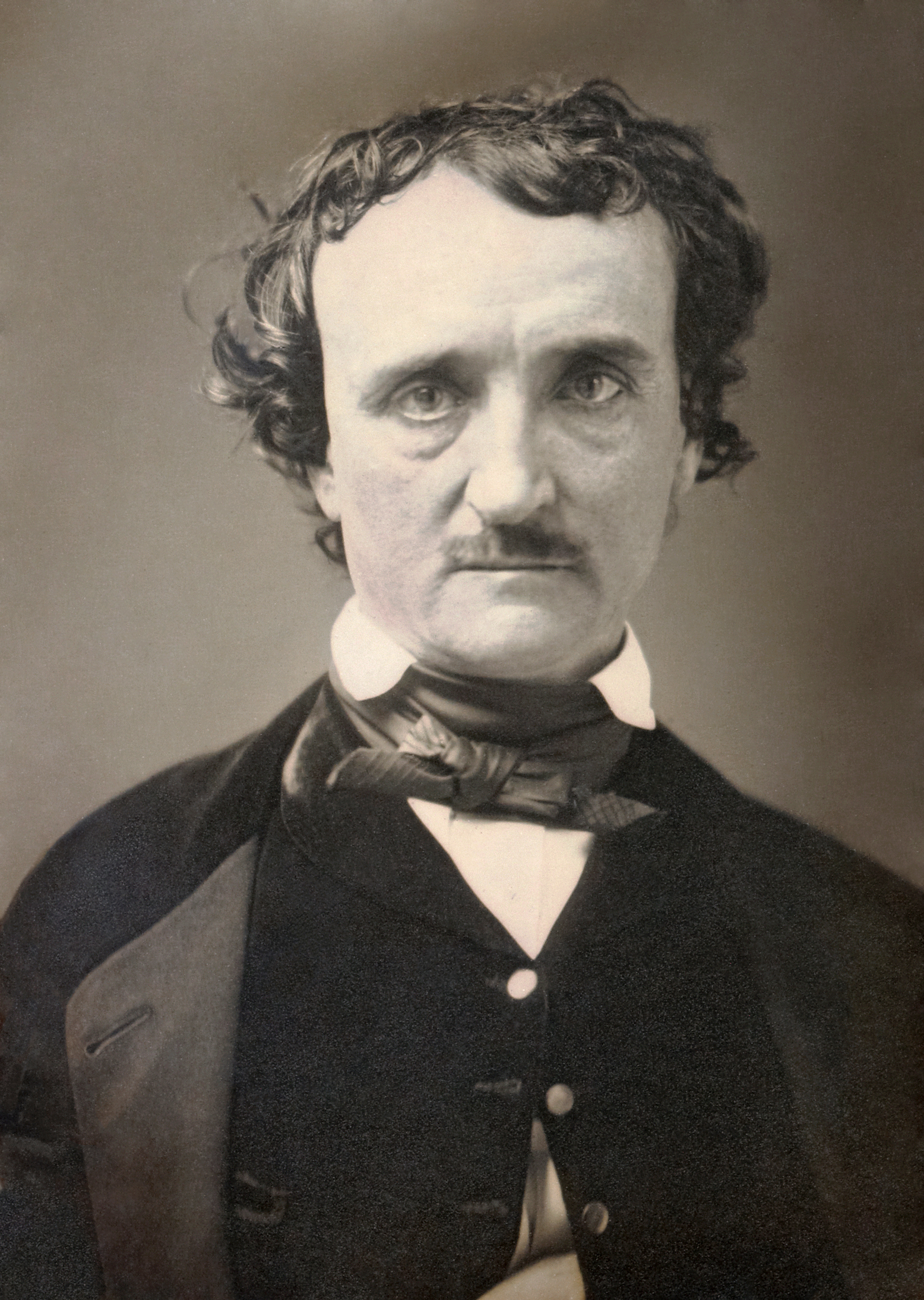“Non credete a nulla di quanto sentito dire e non credete che alla metà di ciò che vedete.”
da Il sistema del dott. Catrame e del prof. Piuma
Edgar Allan Poe fu uno scrittore, poeta, critico letterario, giornalista, editore e saggista statunitense. Considerato uno dei più grandi e influenti scrittori statunitensi della storia, Poe è stato l'iniziatore del racconto poliziesco, della letteratura dell'orrore e del giallo psicologico.
Sebbene la sua vita e le sue opere siano posteriori rispetto al periodo del romanzo gotico vero e proprio, Poe ha finito per essere considerato anche uno dei maggiori esponenti del genere gotico. Del movimento neogotico, infatti, riprende talune suggestioni, svincolandosi però dalle ambientazioni tipiche di tale genere, e sviluppandone maggiormente gli aspetti psicologici, indagando fra le ossessioni e gli incubi personali; pertanto può anche essere considerato come un precursore del decadentismo.
Scrittore di grande inventiva, ha anticipato generi letterari quali il racconto poliziesco , e la fantascienza.
Poe è inoltre considerato il primo scrittore alienato d'America, avendo dovuto lottare per buona parte della vita con problemi finanziari, l'abuso di alcolici e sostanze stupefacenti e con l'incomprensione del pubblico e della critica dell'epoca.

“Non credete a nulla di quanto sentito dire e non credete che alla metà di ciò che vedete.”
da Il sistema del dott. Catrame e del prof. Piuma
“Coloro che sognano di giorno sanno molte cose che sfuggono a chi sogna soltanto di notte.”
da Eleonora
Variante: Quelli che sognano ad occhi aperti sono a conoscenza di molte cose che sfuggono a chi sogna addormentato.
da La sepoltura prematura
1996
I delitti della Rue Morgue
Origine: Citato in Rachael Hale, 101 cataclismi: Per amore dei gatti, Contrasto, 2004, p. 5 http://books.google.it/books?id=CNA4XkQeR8AC&pg=PA48-IA5. ISBN 88-89032-33-2
1983
Quattro chiacchiere con una mummia
1996
I delitti della Rue Morgue
da Il sistema del dott. Catrame e del prof. Piuma
da Il Corvo, in Il Corvo e altre poesie, traduzione di Raul Montanari, Feltrinelli, 2009, p. 69 http://books.google.it/books?id=ISw0s9rS0iEC&pg=PA69
da Eleonora, 1842
libro Tutti i racconti del mistero, dell'incubo e del terrore
citato in Tutti i racconti del mistero, dell'incubo e del terrore
I delitti della Rue Morgue
Origine: L'uomo della folla, p. 19
“Come! let the burial rite be read — the funeral song be sung!”
An anthem for the queenliest dead that ever died so young —
A dirge for her the doubly dead in that she died so young.
"Lenore", st. 1 (1831).
“For the love of God Montresor!”
"The Cask of Amontillado" (1846).
quit the bust above my door!
Take thy beak from out my heart, and take thy form from off my door!"
Quoth the Raven, "Nevermore."
Stanza 17.
The Raven (1844)
“There is no oath which seems to me so sacred as that sworn by the all-divine love I bear you.”
By this love, then, and by the God who reigns in Heaven, I swear to you that my soul is incapable of dishonor — that, with the exception of occasional follies and excesses which I bitterly lament, but to which I have been driven by intolerable sorrow, and which are hourly committed by others without attracting any notice whatever — I can call to mind no act of my life which would bring a blush to my cheek — or to yours. If I have erred at all, in this regard, it has been on the side of what the world would call a Quixotic sense of the honorable — of the chivalrous.
" Letter to Mrs. Whitman http://www.lfchosting.com/eapoe/WORKS/letters/p4810181.htm" (1848-10-18).
then let thy heart
From its present pathway part not!
Being everything which now thou art,
Be nothing which thou art not.
So with the world thy gentle ways,
Thy grace, thy more than beauty,
Shall be an endless theme of praise,
And love — a simple duty.
" To Frances S. Osgood http://www.readbookonline.net/readOnLine/595/" (1845).